Step into the fascinating world of the Affenpinscher, a breed as unique as its name suggests.
From its charmingly mischievous personality to its distinctive appearance, the Affenpinscher captivates dog lovers with its undeniable charm and charisma.
Contents Overview
Preliminary Summary
The Affenpinscher, known for its loyalty and humor, behaves with bravery far beyond its size. Its comical antics stem from its serious demeanor.
Described as “monkey dogs” or “ape terriers,” Affens have an apish appearance. French call them “mustached little devils.”
Standing under a foot tall, these terrier-like dogs exude confidence. Training isn’t the approach; they’re like humans—you befriend them.
Their coat, described as both neat and shaggy, comes in various colors. Affens are known for their willfulness but are mostly loyal and affectionate, making them entertaining companions.
Breed Overview
The Affenpinscher, also affectionately known as the “Monkey Dog” due to its monkey-like facial expression, is a small and charming breed with a bold personality.
Here’s an overview of the Affenpinscher’s key characteristics:
- Size: Affenpinschers are small dogs, typically weighing between 7-10 pounds and standing around 9-11 inches tall at the shoulder.
- Appearance: They have a distinctive wiry coat that comes in various shades of black, gray, silver, or red. Their round, expressive eyes and distinctive facial hair give them a distinctive appearance.
- Lifespan: Affenpinschers have a relatively long lifespan, averaging 12-15 years with proper care and nutrition.
History and Origins
The Affenpinscher has a rich history dating back to the 17th century in Germany.
Here’s a brief overview of the breed’s origins:
- Affenpinschers were originally bred to be ratters, tasked with hunting and eliminating rodents in homes, stables, and shops.
- Over time, they became popular companion dogs among European nobility and were often kept as lapdogs and household pets.
- The breed’s name, “Affenpinscher,” is derived from the German word “affen,” meaning monkey, and “pinscher,” meaning terrier.
Temperament and Personality
Despite their small size, Affenpinschers possess a big personality packed into a tiny package.
Here are some key traits of the Affenpinscher temperament:
- Confident
Affenpinschers are confident and fearless little dogs who aren’t afraid to stand up to larger dogs or assert themselves in any situation. - Lively
They are energetic and playful dogs who enjoy engaging in activities and games that stimulate their minds and bodies. - Alert
Affenpinschers are vigilant watchdogs, always keeping an eye out for potential threats or intruders. - Affectionate
While they can be independent at times, Affenpinschers are also affectionate and loyal companions who form strong bonds with their owners.
Exercise and Training Needs
Despite their small stature, Affenpinschers have moderate exercise needs and require daily physical activity to stay healthy and happy.
Here’s how to meet their exercise and training needs:
- Daily Walks: Aim for at least 30 minutes of brisk walking or playtime in the yard to provide your Affenpinscher with the exercise they need.
- Mental Stimulation: Mental stimulation is mandatory for dogs. Keep your Affenpinscher mentally stimulated with puzzle toys, interactive games, and obedience training sessions to prevent boredom and destructive behaviors.
- Positive Reinforcement: Use positive reinforcement techniques such as treats, praise, and play to motivate and reward good behavior during training sessions.
- Indoor Play: Indoor play, both with his owner and just between himself and a toy, can be enough to make up a large chunk of an Affen’s exercise regimen.
In addition to providing exercise, these walks give the Affen a chance to socialize both with people and other dogs.
Affenpinscher's coat: Type and Length
The Affenpinscher’s coat is as distinctive as its mischievous personality. Here’s a breakdown of its type and length:
1- Coat Type
- Affenpinschers boast a dense, rough coat that exudes a wiry texture. This unique feature not only adds to their appeal but also protects against the elements.
- The coat forms a noticeable ruff around the neck, enhancing their adorable appearance.
2- Coat Length
- Generally, Affenpinschers possess a moderately long coat that covers their compact frame elegantly.
- Though not excessively lengthy, their fur is sufficient to contribute to their overall charm and character.
Grooming and Care
Affenpinschers have a unique coat that requires regular grooming and care to keep it looking its best.
Here’s how to care for your Affenpinscher’s coat:
- Brushing: Brush the dog’s coat at least two to three times a week to prevent matting and tangling.
- Trimming: Trim the dog’s coat every 6-8 weeks to maintain its shape and texture.
- Bathing: Bathe your Affenpinscher as needed, using mild dog shampoo to keep their coat clean and healthy.
- Dental Care: Brush your dog’s teeth regularly and provide dental treats or toys to promote oral health.
Shedding Level
Shedding can be a concern for many prospective pet owners.
Let’s delve into the shedding tendencies of Affenpinschers:
1- Low to Moderate Shedding
- Affenpinschers are considered to be low to moderate shedders, making them a suitable choice for individuals with allergies or those who prefer to keep their living spaces relatively hair-free.
- While they do shed, it’s typically not excessive. Regular grooming can help manage and minimize shedding, keeping your home clean and tidy.
2- Seasonal Variations
- Like many breeds, Affenpinschers may experience increased shedding during seasonal changes, particularly during the transition from winter to spring when they shed their winter coat.
- Providing regular brushing sessions during these periods can help remove loose fur and prevent excessive shedding around your home.
Common Health Issues
While Affenpinschers are generally healthy dogs, they may be prone to certain health issues common to the breed.
Some common health concerns include:
- Luxating Patella: Luxating Patella is a condition where the kneecap slips out of place, causing lameness and discomfort.
- Hip Dysplasia: Hip Dysplasia is a hereditary condition where the hip joint doesn’t develop properly, leading to arthritis and mobility issues.
- Dental Problems: Affenpinschers are prone to dental issues such as tooth decay, gum disease, and tooth loss.
- Respiratory Problems: Due to their flat faces and short noses, Affenpinschers may be prone to respiratory issues such as snoring, wheezing, and difficulty breathing.
Health tests advised by the National Breed Club include evaluations for patella and ophthalmologist evaluation.
Drooling Level
Drooling is a common concern for potential dog owners, especially for those who prefer to maintain a clean environment.
Let’s explore whether the Affenpinscher is likely to leave a trail of drool:
1- Minimal Drooling
- Fortunately, the Affenpinscher is not known for excessive drooling.
- While individual dogs may vary in their drooling tendencies, this breed typically does not exhibit the copious drool associated with some larger breeds.
2- Factors Influencing Drooling
- While the Affenpinscher may not be predisposed to drooling, certain factors such as excitement, anticipation of food, or hot weather may trigger mild drooling in some individuals.
- Overall, compared to breeds renowned for their slobber, the Affenpinscher tends to keep things tidy in the drool department.
Nutrition and Diet
Providing your Affenpinscher with a balanced and nutritious diet is essential for their overall health and well-being.
Here are some tips for feeding your Affenpinscher:
- High-Quality Food: Choose a high-quality dog food that is appropriate for your Affenpinscher’s age, size, and activity level.
- Portion Control: Monitor your Affenpinscher’s food intake and avoid overfeeding to prevent obesity and related health problems. Some dogs are prone to getting overweight, so watch your dog’s calorie consumption and weight level. Treats can be an important aid in training, but giving too many can cause obesity.
- Fresh Water: Always provide fresh, clean water for your Affenpinscher to drink throughout the day to stay hydrated.
Learn about which human foods are safe for dogs, and which are not. Check with your vet if you have any concerns about your dog’s weight or diet.
Living Environment and Housing
Affenpinschers are adaptable dogs that can thrive in various living environments, including apartments, condos, and single-family homes.
Here are some factors to consider when creating a suitable living environment for your Affenpinscher:
- Indoor Space: Provide your Affenpinscher with plenty of indoor space to move around and explore, including access to cozy beds and safe toys.
- Outdoor Access: While Affenpinschers enjoy outdoor playtime, they should always be supervised when outdoors to prevent accidents or injuries.
- Temperature Control: Affenpinschers are sensitive to extreme temperatures and should be kept indoors in climate-controlled environments during hot or cold weather.
Barking Level
Barking is a form of communication for dogs, but the frequency and intensity can vary greatly between breeds.
Here’s what you need to know about the Affenpinscher’s barking tendencies:
1- Moderate to High Barking Tendency
- Affenpinschers are known for their vigilant nature, which often translates into a moderate to high barking tendency.
- These spirited little dogs are quick to alert their owners to any perceived threats or changes in their environment, making them excellent watchdogs.
- While their tendency to bark can be beneficial in alerting you to potential dangers, it’s essential to provide proper training to manage excessive barking behavior.
2- Triggers for Barking
- Affenpinschers may bark in response to various stimuli, including strangers approaching the home, unfamiliar sounds, or excitement during play.
- Understanding the triggers for your Affenpinscher’s barking can help you address the behavior effectively through training and management techniques.
Trainability Level
Trainability of a dog is a crucial factor to consider when choosing a canine companion.
Let’s explore the Affenpinscher’s aptitude for learning and obedience:
1- Independent Spirit
- Affenpinschers are known for their independent streak, which can sometimes make training a bit challenging.
- Their intelligence and spirited nature mean they may occasionally test boundaries or display stubborn behavior during training sessions.
2- Consistency and Patience
- Successful training with an Affenpinscher requires consistency, patience, and positive reinforcement techniques.
- Short, engaging training sessions that incorporate rewards and praise can help keep your Affenpinscher focused and motivated.
3- Socialization Importance
- Early socialization is crucial for Affenpinschers to help them develop good manners and interact appropriately with other dogs and people.
- Exposing them to various environments, sounds, and experiences from a young age can help prevent behavioral issues and promote a well-rounded adult dog.
Socialization and Interaction
Socialization is crucial for helping your Affenpinscher develop into a well-behaved and well-adjusted dog.
Here are some tips for socializing your Affenpinscher:
- Early Exposure: Introduce your Affenpinscher to a wide range of people, animals, and environments from a young age to help them feel comfortable and confident in different situations.
- Positive Experiences: Create positive experiences by rewarding your Affenpinscher with treats, praise, and play when they interact with new people, dogs, or environments.
- Ongoing Socialization: Continue to expose your Affenpinscher to new experiences throughout their life to prevent fearfulness or aggression and promote positive social skills.
Choosing a Responsible Breeder or Rescue Organization
Finding a reputable breeder or rescue organization is crucial when considering adding an Affenpinscher to your family.
Here’s what to look for:
- Research: Look for breeders or rescue organizations with a good reputation and experience with Affenpinschers.
- Health Screening: Ensure that the breeder conducts health screenings for genetic conditions common in the breed, such as luxating patellas and heart issues.
- Socialization: Choose a breeder or rescue organization that prioritizes socialization and temperament testing to ensure well-adjusted puppies.
- Ethical Practices: Confirm that the breeder follows ethical breeding practices and is transparent about the dog’s lineage, health records, and any potential issues.
Adoption Considerations
Before adopting an Affenpinscher, consider the following factors to ensure a successful match:
- Lifestyle Compatibility: Assess whether the Affenpinscher’s energy level, exercise needs, and temperament align with your lifestyle and living situation.
- Time Commitment: Affenpinschers require regular grooming, training, and attention, so be prepared to invest time and effort into their care.
- Financial Responsibility: Factor in the costs of veterinary care, grooming, food, and supplies when considering adoption.
Compatibility with Children and Other Pets
Affenpinschers can make great family pets, but it’s essential to supervise interactions with children and other pets due to their small size and assertive nature.
Consider the following:
- Supervision: Teach children how to interact gently with the Affenpinscher to prevent accidents or injuries.
- Socialization: Early socialization is key to ensuring that Affenpinschers get along well with other pets and children.
- Training: Proper training can help manage any potential conflicts and teach the Affenpinscher appropriate behavior around children and other animals.
Breed-Specific Legislation and Regulations
Breed-specific legislation (BSL) may impact ownership of Affenpinschers in certain areas.
Be aware of local regulations regarding breed restrictions or ownership requirements.
Famous Dogs of the Breed
Though not as widely recognized as some other breeds, Affenpinschers have had their share of famous canine counterparts.
For example:
- Banana Joe: A famous Affenpinscher who won Best in Show at the Westminster Kennel Club Dog Show in 2013.
Bottom Line
In conclusion, adding an Affenpinscher to your family can be a rewarding experience, but it’s essential to do your research and consider all factors before making a decision.
Remember to choose a responsible breeder or rescue organization, assess compatibility with your lifestyle and family dynamics, and stay informed about breed-specific legislation and regulations in your area.
For more information and resources on Affenpinscher ownership, consider reaching out to reputable breed clubs, rescue organizations, and online communities dedicated to the breed.
These resources can provide valuable guidance and support throughout your journey as an Affenpinscher owner.

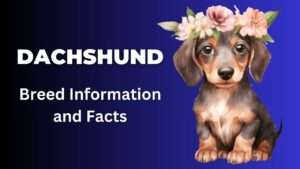

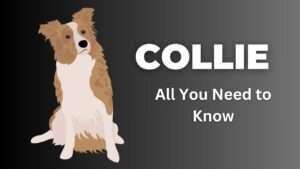


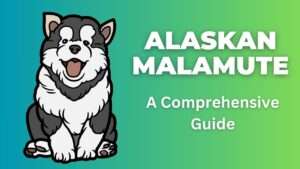
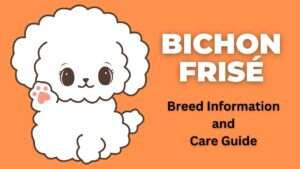





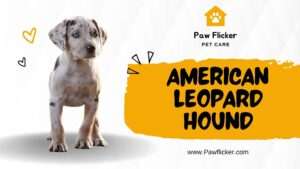
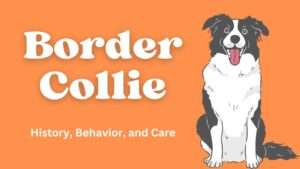

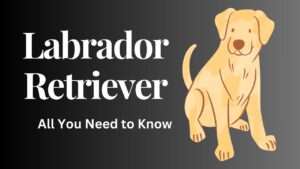







+ There are no comments
Add yours